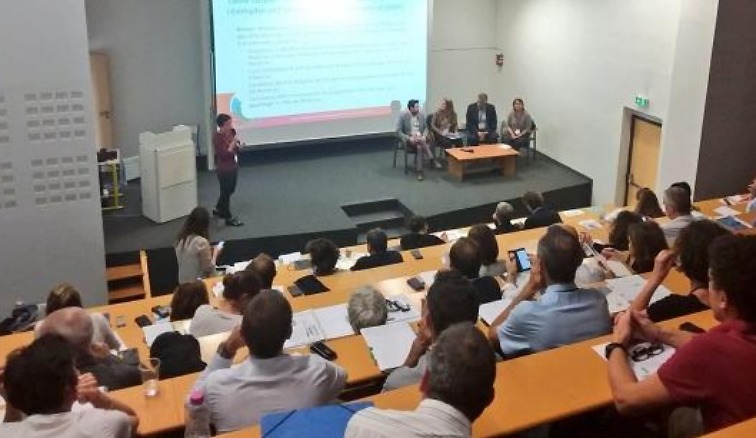Feedback from the works contracts day serving the circular economy

“On October 19th, the PACA region in France held a day on “Works contracts for the circular economy” organized by ADEME, the Region and the regional agency for the environment (Agence régionale pour l’environnement - ARPE). Over 120 people attended and discussed circular economy issues”.
Objectives
- How to respond to the new regulatory requirements of the Energy transition law for green growth?
- What are the new issues involved in re-using materials and using recycled materials for their public works?
This day provided an opportunity to present two decision-making tools, shared by the entire profession: TRACC EXPERT and SEVE. Public and private owners, contractors, companies, scientific and technical networks need to evaluate the impacts of works contracts in order to include environmental criteria to move towards more sustainable solutions.
TRACC EXPERT is a guide to help choose road technologies for mitigating climate change. It includes a database listing more than 80 road techniques to help define the most appropriate technical solution for the project. SEVE is an eco-comparison system used during calls for tender to compare the environmental variants proposed by companies. The user enters the parameters of the solutions proposed (type of layers, constituents, condition in which the roadway is made, composition of the application workshops, distances and means of transport, etc.). Quantitative indicators (energy consumption, greenhouse gas emissions, resource preservation, tonne-kilometres) and two declarative indicators (water management and biodiversity) are taken into account. The environmental impact of each solution is thereby estimated. Feedback from two experiences provided a practical illustration of the new regulatory context and the use of these tools.
The Limoges Métropole urban authority (by Patrick Tardieux, Director of technical studies), has been taking the challenges of the circular economy into account in its works contracts for several years. Through the use of SEVE software, this authority can more easily make environmental assessments of bids. The use of recycled materials in its projects is now almost systematic: milled and demolition materials, slag from incinerated household waste and porcelain. Porcelain waste (damaged dishes) accounts for 25% of production and was initially treated as waste. It is now used to make roads. Porcelain presents another advantage: it is part of the innovative “lumiroute” project which aims to reduce the amount of lighting required by using a lighter surface coating. Two sustainable development goals in one project!
The development of the Péronne business park in Miramas is also an example to follow in the circular economy. This project benefits from a very favourable context: Miramas is an Agenda 21 town, an area of zero waste; EPAD Ouest Provence, the delegated project manager and the project management team including AFC Architecture are sensitive to these questions. The main theme of the project was therefore eco-design serving the circular economy. Within this framework topsoil, pebbles from Crau and silts were reused. A lot of skill was required to carry out this project despite the many difficulties in the way, such as sorting and crushing on site, maintaining and preserving ecological continuity, creating a quality landscape, difficulties in preparing the ICPE file, and litigation related to potential noise.
>> Integrating the circular economy into building and public works projects requires anticipation to identify projects upstream, materials that can be recycled, refurbished or reused, particularly because of regulatory imperatives. The town of Miramas understood this and defined its region as a “project zone”. In this context, it regularly meets all the future contracting authorities in this zone during special construction waste project zone business breakfasts. It has set itself ambitious goals: to encourage discussion between future building project owners for cleaner sites and more materials reused!
To meet the expectations of the public contracting authorities in Provence-Alpes-Côte d'Azur, a “construction contracts for the circular economy” club was created. The purpose of this club will be to remove obstacles to including specific requirements in the construction market to serve the circular economy by reusing materials and using recycled materials, for example, to create collective momentum to serve environmental issues and regulations, to share experiences between owners, disseminate best practice with tools and guides, visit exemplary projects, help sourcing to better identify products and their technical characteristics, and talk with the companies.
You can see the presentations and the list of participants by clicking here
Source: ARPE PACA
Information published by CIRIDD in partnership with the monitoring and economic intelligence department of Auvergne-Rhône-Alpes Entreprises.